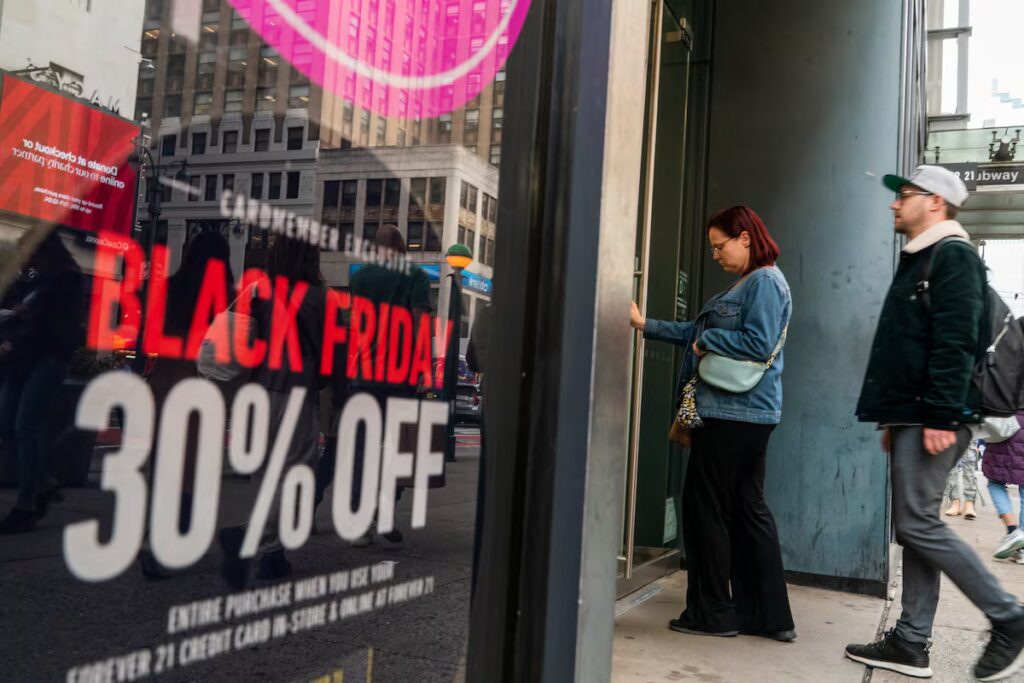
This Thursday, November 27, the United States will celebrate Thanksgiving, marking the start of a holiday season in which consumers are more worried than ever about their finances. A Deloitte survey shows that shoppers plan to spend 4% less during the two major US shopping events – Black Friday and Cyber Monday – which take place over Thanksgiving weekend. Data from the polling institute indicates that 2025 marks a significant change in trend as household spending intentions nationwide increased year after year.
Both ends of the socioeconomic spectrum are expected to experience cuts. Consumers earning about $50,000 a year will spend 12% less than in 2024, while those earning more than $200,000 say they will reduce their spending by up to 18%.
Inflation has been rising since April, according to official data, reaching an annual rate of 3% in September. US President Donald Trump’s tariff war has been one of the causes of price increases that have left Americans oscillating between frustration and uncertainty. Last week, the president softened policy and announced a tariff cut in Brazil to lower the price of meat, coffee and other fresh produce.
Consumer confidence is at its lowest. A study from the University of Michigan shows that sentiment in November is at its lowest levels on record, just above the June 2022 low. The survey highlighted that people are particularly worried about their jobs and personal finances: 69% fear that unemployment will rise next year (double from last year) and expect inflation to reach 4.5% in 2026. “After the end of the federal shutdown, sentiment has improved slightly compared to the mid-point reading month. However, consumers remain frustrated with persistently high prices and weakening incomes,” said Joanne Hsu, director of the study.
Financial stress has pushed consumers to look for alternatives, and some major retailers have benefited. Walmart reported strong results last week. Its sales strategy attracts shoppers looking to save on groceries and other essential items. The company said higher-income families also turn to the retailer for deals. “As wallets have been slimmed down, you see more consumer dollars going towards essentials rather than discretionary items,” said Chief Financial Officer John David Rainey.
Gap and TJX Cos, owner of TJ Maxx and Marshalls stores, also reported strong quarterly results, another sign that shoppers are prioritizing convenience. By contrast, Target and Bath & Body Works – stores geared toward a higher-income segment – are struggling to increase sales.
This holiday season will also see an increase in “buy now, pay later” digital services. A report from PayPal shows that half of shoppers plan to use apps like Klarna, Afterpay and Affirm, which allow purchases to be paid in installments, typically with 0% interest.
Sign up to our weekly newsletter to get more English-language news coverage from EL PAÍS USA Edition





